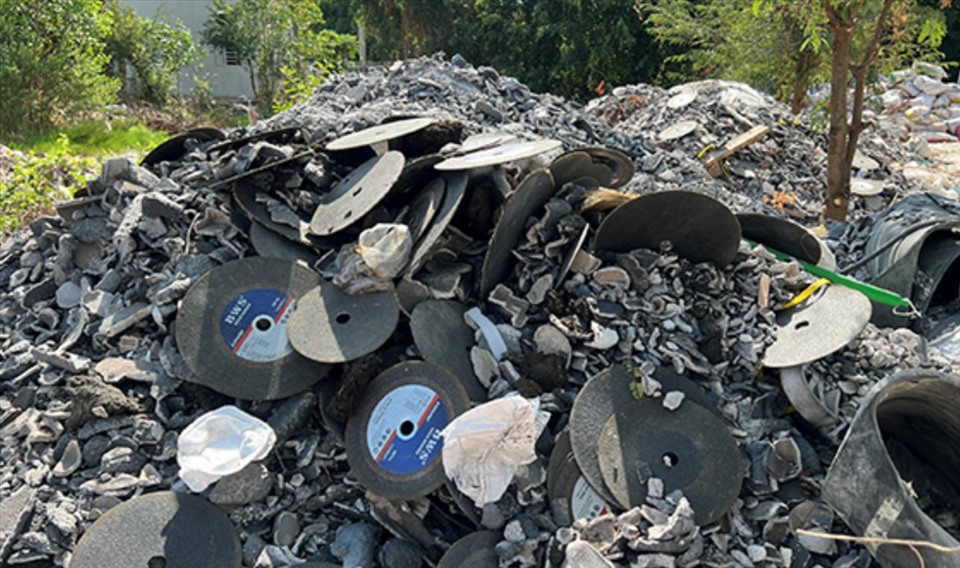What are the regulations on the classification, storage and transport of normal industrial solid waste in Vietnam? - The Van (Ben Tre, Vietnam)

Classification, storage and transport of normal industrial solid waste in Vietnam (Internet image)
1. Classification, storage and transport of normal industrial solid waste in Vietnam
According to Article 81 of the Law on Environmental Protection 2020, the classification, storage and transport of normal industrial solid waste are as follows:
- Normal industrial solid waste (“NISW”) shall be classified into the following groups:
= NISW reused and recycled as production materials;
= NISW in compliance with standards, technical regulations and technical guidance used in production of building materials and leveling;
= NISW subject to treatment.
- Owners of businesses, dedicated areas for production, business operation and service provision, industrial clusters and organizations that produce NISW shall classify NISW at source as prescribed in Clause 1 of this Article; store NISW without causing environmental pollution. Unclassified NISW must be managed as the waste specified in Point c Clause 1 of this Article.
- NISW containing hazardous waste that has not been classified or cannot be classified must be managed in accordance with hazardous waste management regulations.
- Classified NISW must be stored separately without being mixed with hazardous waste; without release of dust and leakage of wastewater into the environment; with appropriate equipment and tools and in appropriate storage areas in accordance with regulations laid down by the Minister of Natural Resources and Environment.
- NISW must be transported in accordance with the following requirements:
= NISW must be contained in equipment and tools to avoid leakage during transport, except for the case where the waste in large quantity must be contained in equipment or tank of the transport vehicle;
= Classified NISW must be transported separately prescribed;
= The vehicle used for transporting NISW subject to treatment must have a GPS tracking device meeting technical requirements and comply with regulations on routes and time of operation adopted by the provincial People's Committee.
2. Treatment of NISW in Vietnam
Treatment of NISW in Vietnam according to Article 82 of the Law on Environmental Protection 2020 is as follows:
- Businesses, dedicated areas for production, business operation and service provision, industrial clusters and organizations that produce NISW must reuse, recycle, recover energy from and treat NISW or transfer it to the following entities:
= Manufacturing establishments directly using NISW as production materials and for production of building materials or leveling, which is licensed to operate as prescribed by law;
= Manufacturing establishments licensed for waste co-processing;
= Facilities licensed for NISW treatment;
= Facilities transporting NISW, which have signed a transfer contract with the entity in Points a, b or c of this Clause.
- NISW treatment service providers must comply with environmental protection requirements in accordance with regulations of this Law.
- Every owner of NISW treatment service provider has the following responsibilities:
= Ensure that systems, vehicles and equipment in service of storage and treatment of NISW, including preliminary processing, reuse, recycling, co-processing, treatment of and recovery of energy from NISW in accordance with technical requirements and management process as prescribed;
= If the provider produces hazardous waste, responsibilities of the hazardous waste source owner shall be assumed;
= Submit periodic or ad hoc reports on NISW generation and treatment at the request of the competent authority;
= make a record on transfer of NISW subject to treatment for each transfer; prepare a logbook recording operation of systems, vehicles and equipment in service of NISW treatment including preliminary processing, reuse, recycling, co-processing and recovery of energy from NISW; a logbook recording quantity of products recycled or recovered from NISW (if any).
- Every entity that generates NISW subject to treatment is entitled to recycle, treat, co-process or recover energy from NISW itself/himself/herself if the following requirements are met:
= Use technologies, environmental protection works and equipment available within the facility generating NISW and satisfy environmental protection requirements as prescribed;
= Conform to the decision on approval of EIAR appraisal result and environmental license;
= Do not build any new incinerator or landfill to treat NISW, except for the case where contents regarding solid waste management in relevant planning are conformable with.
Quoc Dat
 Article table of contents
Article table of contents





.Medium.png)
.Medium.png)
.Medium.png)
.Medium.png)
